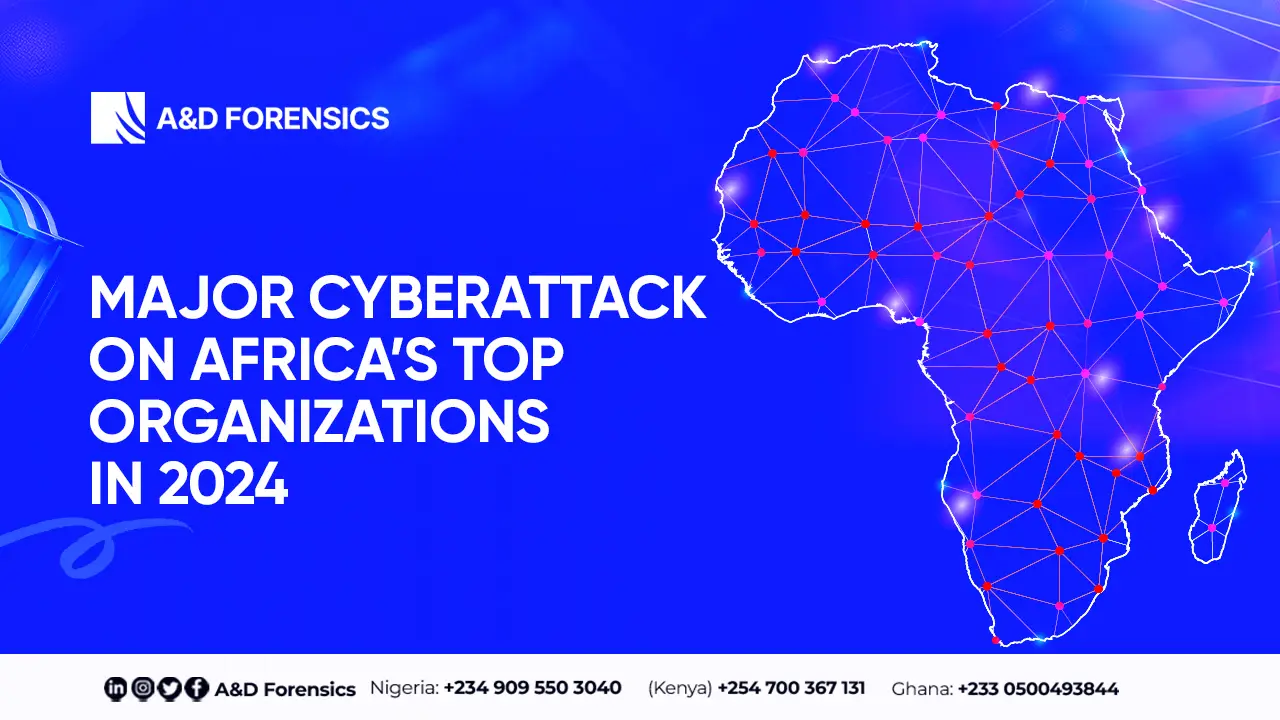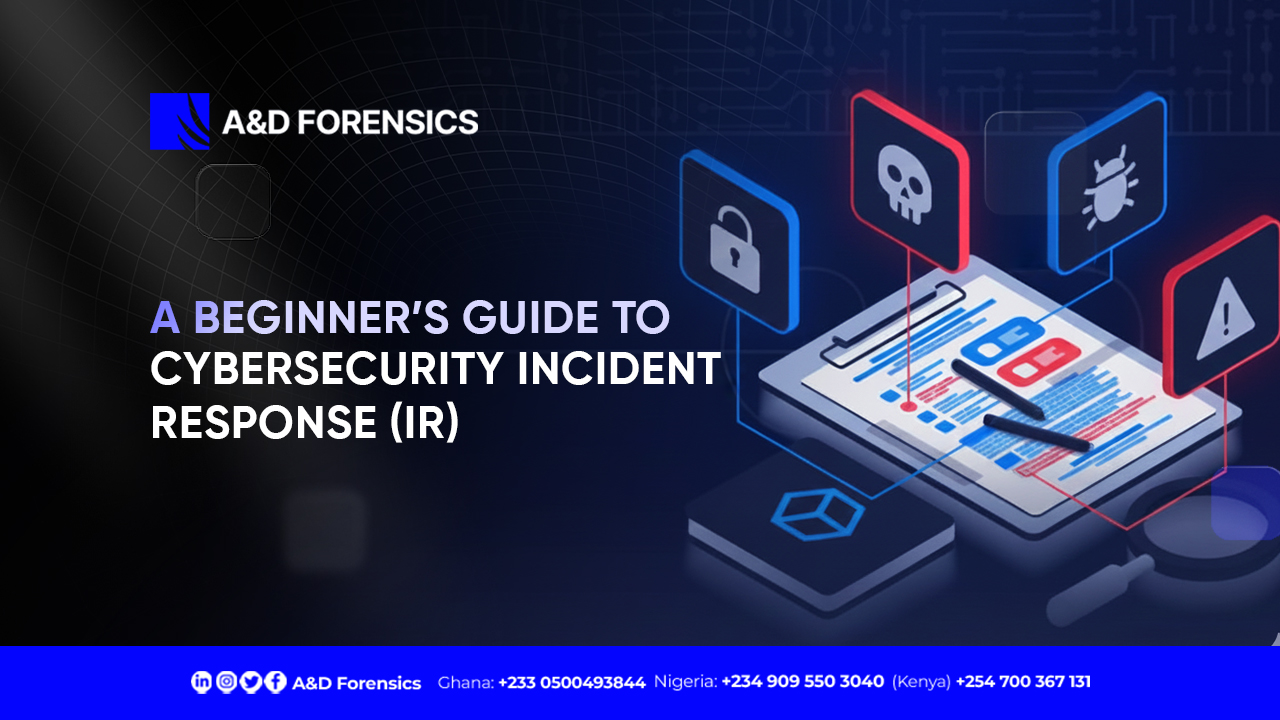
Over the years, cyber attacks have become one of the major threats since the world entered the digital age, where almost everything is seen and done over the internet.
These attacks exploit users’ credentials, personal information, finances e.t.c and as the day goes by it becomes worse, cyber security statistics (currently as of 2025) indicate that there are 2200 cyber attacks per day, with cyber attacks happening every 39 seconds on average.
For a better perspective, McAfee recently reported that up to 1% of the world’s GDP is lost to cyber crime each year – that equates to nearly $9.6 trillion. In the United States alone, the FBI reported that over $10 billion was lost to various cyber attackers in 2022
However, Africa is not left out of these increasing cyber attacks and the financial sector is the second most targeted after government entities with the most digitally developed countries in Africa, including Nigeria, Egypt, South Africa, and Kenya, being the primary focus.
According to Statista, these countries have internet user bases of 103 million, 82 million, 45 million, and 23 million respectively, making them more susceptible to cyber threats.
Major Cyber Attacks in Africa’s Top organizations in 2024
1. Eneo – January, 2024
In January 2024, Eneo, Cameroon’s energy provider, was the target of a cyberattack that suspended several applications. The company confirmed a breach but refrained from sharing specific details regarding the attack.
2. Telecom company in Uganda – February
On February 6, 2024, Uganda’s major telecommunications companies – Airtel, MTN, and Uganda Telecom – were hit by a wave of DDoS attacks carried out by the hacktivist group, Anonymous Sudan. These attacks disrupted their core services, with the group claiming that the incident was in protest against companies supporting the Sudanese government in the ongoing civil conflict. The attacks highlighted the geopolitical motivations behind some cyber threats.
In April 2024, Nigerian fin-tech company Flutterwave experienced a security breach that led to the unauthorized transfer of funds. While the company did not reveal the exact amount stolen, reports suggested that up to ₦11 billion (around $7 million) had been compromised. The breach involved the routing of funds through several accounts in different financial institutions to evade detection. The attack prompted questions about the adequacy of security measures in Nigeria’s fintech sector.
4. Micro and Small Enterprise Authority (MSEA) Kenya – December, 2024
Kenya’s Micro and Small Enterprise Authority (MSEA) was also targeted in December 2024. Hackers exposed sensitive organizational and government data on the dark web. The data, which included employee records, government communications, and financial statements, was listed for sale at $100,000
5. NBS WEBSITE – Nigeria, December, 2024
The National Bureau of Statistics (NBS) in Nigeria was targeted by hackers in December 2024. The agency’s website was compromised and displayed a blank page with the message “Page Hacked.” NBS confirmed the attack and assured the public that efforts were underway to restore the website and secure it.
According to a report by Check Point Research, the African countries most affected by cyber attacks in 2024 were:
- Ethiopia: Ranked highest in terms of malware attacks.
- Zimbabwe: Also ranked high globally in malware attacks.
- Angola: Experienced a significant rise in malware attacks.
- Kenya: Saw an increase in malware risks.
- South Africa: While not among the top-ranked, it still faced a notable number of cyberattacks.
Impact’s of This Cyber Attacks
These cyber attacks have many effects on the African continent which include
- Economic Impact: Loss of revenue, disruption of trade, damage to critical infrastructure.
- Social Impact: Disruption of essential services like healthcare and education, erosion of trust in digital systems.
- Political Impact: Interference in elections, undermining of democratic processes, national security threats.
- Human Rights Impact: Violation of privacy, freedom of expression, and other fundamental rights.
Challenges Faced by African Countries in Handling Cyber Attacks:
Limited Resources: Lack of funding for cybersecurity infrastructure and personnel.
Lack of Skilled Professionals: Shortage of cybersecurity experts in many African countries.
Legal and Regulatory Frameworks: Weak or non-existent laws to combat cybercrime.
Lack of Awareness: Low level of cybersecurity awareness among the general public and businesses.
More awareness programs should be organized by the government to the people to educate them more on cyberattacks and how to protect their information online so as to avoid exploitation.
Cross-border Cooperation: Difficulties in coordinating cybersecurity efforts across borders.
Solutions and Mitigation Strategies in Dealing With Cyber Attacks in Africa
Investment in Cyber security Infrastructure: Building strong defenses, including firewalls, intrusion detection systems, and encryption.
Capacity Building: Training and education programs to develop a skilled cybersecurity workforce, to combat cyber threats.
Legal and Regulatory Frameworks: Developing and enforcing strong laws to combat cybercrime.
International Cooperation: Collaboration between African countries and international organizations to share information and resources to fight against cybercrime.
Public Awareness Campaigns: Raising awareness about cyber security threats and best practices.
Conclusion
In conclusion, the cyber attacks that rocked prominent African organizations in 2024 aren’t just headlines; they’re a wake-up call. These incidents, from the disruption of essential services like energy in Cameroon to the financial blow dealt to a fin-tech giant like Flutterwave in Nigeria, feel close to home. They underscore just how vulnerable we are in this increasingly digital world. It’s not just faceless corporations at risk; it’s our data, our services, and our economies that are being targeted. This isn’t someone else’s problem; it affects us all. Moving forward, we can’t afford to be complacent. We need to demand better protection, from stronger cybersecurity infrastructure and more skilled professionals to clearer laws and greater awareness. It’s about protecting our future, our businesses, and ourselves in the face of these evolving threats. Only by taking a proactive and collaborative approach can we truly secure Africa’s digital future. Visit A&D Forensics cyber security Arm for your cyber security related services.






